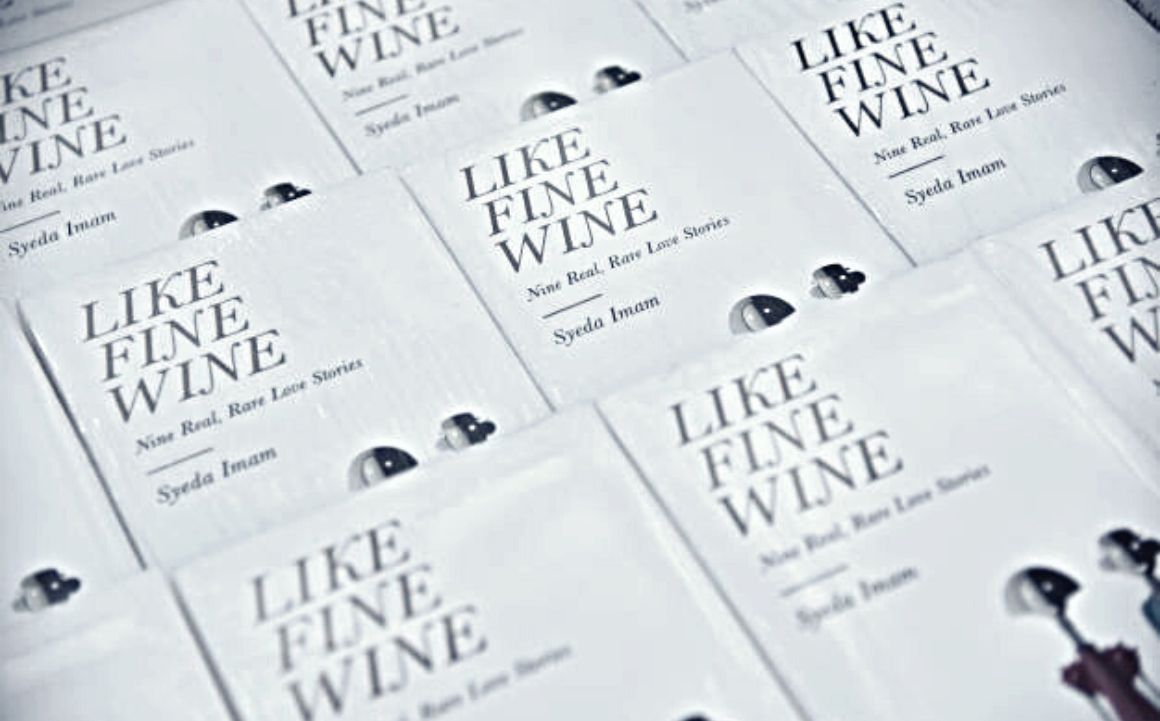Words wear different garbs very often, almost playfully, as they go along. As time and use and events overtake, they cannot stay pristine. In each phase, a particular sense, an aura asserts itself.
Take the word ‘encounter’, for instance. What did encounter mean to people in the first place, unlayered, unladen? Quite simply, two persons or things coming up face to face with each other. A meeting, with a suddenness to it … when did it come to mean more?
Did it stretch to acquire this redolent flavour when David Lean in his very first film Brief Encounter had Celia Johnson and Trevor Howard making sure it does? The British film director, so wooed by Hollywood, presents an unusual romance that tugs at you almost hauntingly. Two people who chance upon each other in the waiting room of a railway station, giving encounter a meaning beyond a ‘hello, how do you do’ or just the discovery of a bond beyond a common train route. What unfolds is that rare spark when two stones strike, steady to a flame, refuse to recede or flicker or sputter out. They remain insistent. The audience wants to see it more than once. Producers feel they should repeat the formula, back a winning horse, renew a legend. Two more versions of the film want to thrive on its success, but no, the mystique is missing.
The century turns – and along with it the meaning of the word. The blaring headlines across newspapers, television, radio, and internet, have now grabbed the word, altered it, given it another meaning altogether, shedding the delicacy, the draw it long possessed. ‘Encounter’ has now entered the portals of danger, deceit, violence, and dishonour and has very little, if anything at all, to do with a relationship. It now warrants easy attention, becomes pet property of the news hack – rife with the possibility of that intricate horror story that guarantees eyeballs and avid readership.
The attempt in this book is to restore to the term ‘encounter’ that earlier rare potential – of entering lives curiously, significantly, often entirely unbidden. And then staying, uniquely: deepening, rising, becoming stronger. The nervousness that daunts the prospect of ‘till death do us part’ or its equivalent in every language, is more daunting today than it has ever been. And it invites one to wonder at anointed romances over which wonder and speculation remains.
It must be acknowledged that our history brims over with feeling: whether in the patience of Ram and Sita in their separation, the valour of Samyukta and Prithviraj against Jaichand’s cruel opposition, the unsung devotion of Chhatrapati Shivaji as he dies crying out ‘Sai! Sai!’ to his favourite queen. The instances abound.
How did the Moghul Prince Salim, later Jehangir, graduate from his reckless pursuit of Anarkali, his father Akbar’s youngest harem favourite, to his resolute courtship of a startlingly beautiful young widow who then ruled his life, his court, his empire? What was Noor Jahan’s particular draw? Was it the fire in her eyes, her unabashed gaze, unusual in a gentlewoman? Was it the mystery of what lay behind the veils and layers of modesty? For Noor Jahan was a woman as gifted at polo as at chess. Was it recompense on Prince Salim’s part to enthrone as his consort this widow of Sher Afghan, the gallant man who had saved his life while gravely endangering his own in astounded public view? It could be any or all of these – along with a shrewd sense that she would best partner him in overseeing the troubled affairs of his extended empire. Given Jehangir’s love for the pleasures of wine, the latter may have been the reason foremost.
The Taj Mahal stands testimony to the love his son Shah Jahan bore Mumtaz. To the legend that this Emperor, still handsomely gracing many a miniature, had eyes for no other woman than his queen.
The West is equally fraught and engaged in this arena. No one escapes unscathed. What was so compelling about Mrs Wallace Simpson, that England’s heir apparent spurn for her an empire at its very zenith? Was he choosing the privilege of royalty without its pain or burden by rejecting the entire Commonwealth as his domain? Not deeming this a noble sacrifice, legend has spurned him.
And the following irony is in sharp contrast. Born with a speech defect yet forced into kingship, his brother George VI lives out with his queen every vow they had pledged under the pealing church bells. Too good to be true, even a shade boring … and hence not legend.
And what if Winston Churchill claimed he poured out everything to his darling Clementine, ‘telling her each detail, talking to her about everything’ through all his years of war and peace, storm and calm, victory and defeat. Whether she may have been yawning and he too drunk to notice, there is no knowing. Their fifty-six years of married devotion insists on mention but perhaps does not qualify as legend.
More seriously, does Camilla’s romance with Prince Charles, now King, overshadow every other for endurance, restraint, the stiff upper lip? Love that stayed despite being disallowed. Love that survived years of a hectic schedule in a celebrated marriage with another woman, the darling of the British people. Not undone by the staunch and justified disapproval of his people, his Church, his parents, his children.
A couple undeterred. How vindicated Charles and Camilla must have eventually felt in leading the congregation as the world watched – declaring the act of penitence from the 1662 Book of Common Prayer:
We acknowledge and bewail our manifold sins and wickedness, Which we, from time to time, most grievously have committed by thought, word and deed, Against thy Divine Majesty, Provoking most justly thy wrath and indignation against us.
Consider Camilla’s panic right before the event, after all those years of assiduous waiting. When the wedding suddenly stood postponed – at the very last minute to 9 April! Even though it was fleeting, just for a day and for the good reason of Charles having to rush to be present at the Pope’s funeral. Then again the wrench for Charles, that Queen Elizabeth, his mother holding the rank of Supreme Governor of the Church of England, must absent herself on his big day. Charles and Camilla’s first ‘encounter’ could never have had any of these premonitions. And now with much to do as King and Queen Consort, these may well have receded.
A generation later the barriers lift, dramatically. Prince Harry and Meghan Markle of America manage their ceremony like a cakewalk. They even chance his country, renounce its claims on them, doing their very own thing, uncaring.
Turning to poets, one wonders if they fared differently altogether. Would their poetry move and affect as much if their loves were less frustrated, lives more complete? Would Ghalib have embroidered Persian and Urdu into verse of undying beauty, if blissfully joined to the woman he most desired? In our century, a long-standing marriage to Shabana has neither deterred nor numbed expression in the man she calls Jadoo.
Javed Akhtar’s poetic sparks continue to fly. On the other hand, Gulzar may have not been so eloquent in his consistent stream of couplets if his romance with Rakhi had flourished long and steadily. There is no knowing.
How did the Stratfordian Anne Hathaway become Mrs William Shakespeare? When did John Donne set eyes on his Anne before she had him undone, by his own confession? You will remember his quip in verse:
John Donne
Anne Donne
Undone!
Would T.S. Eliot have written these lines to his wife and helpmeet Valerie had he not weathered years of an earlier, tortured marriage? Would he have given the English-speaking world the poignancy of his Dedication to My Wife:
To whom I owe the leaping delight
That quickens my senses in our waking time
And the rhythms that governs the rhythm of our sleeping time,
The breathing in unison.
Of lovers whose bodies smell of each other
Who think the same thoughts without need of speech,
And babble the same speech without need of meaning…
And then, this anglicized American long domiciled in London, shares with you his song while denying you his haven:
No peevish winter wind shall chill
No sullen tropic sun shall wither
The roses in the rose garden which is ours and ours only
But this dedication is for others to read:
These are private words addressed to you in public.
Lines the poet may be gifting me as a fitting frontispiece to this book!
Back home, poet Dom Moraes set it down pat with a kind of adolescent charm, well before he wed actress Leela Naidu:
All true love I know is
Patience and care.
Such grain as I grow is
Hued like your hair.
He underscores here that love is no infatuation. That discovery may be sudden or headlong, the journey fraught, the formula elusive. But the magic in the end is in the giving. He turns encounter into a state of interesting and interested permanence. But drink probably came in the way of all his good intentions.
Finally, a word on what the reader and I have a right to be curious about. What trigger is it that takes hold, escapes logic, is there to stay. Is it sheer instinct? Or an all-defying chemistry which insists that this is it. Or is it an Achilles heel type vulnerability, a moment of weakness, a sense of incompleteness without the other?
To continue reading, get your copies here.

